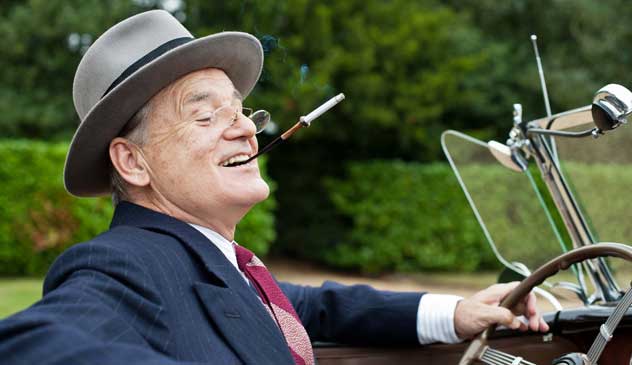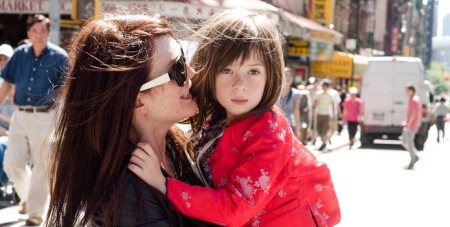 The Toronto International Film Festival wraps up today (movies are still being projected, though, even as I type) and the awards are out. Silver Linings Playbook took the Audience Prize, which is usually a good sign for Oscar. 10 of the 34 past winners have gone on to Best Picture nominations with 4 eventually winning the top prize (The King's Speech, Slumdog Millionaire, American Beauty and Chariots of Fire). That group of 34 films also includes 1 Best Documentary Oscar winner and 9 Best Foreign Language Film nominees (5 of them eventual winners.) It's not fail safe of course. Last year's winner Where Do We Go Now? looked strong for Oscar foreign play but wasn't nominated and the previous winner's list includes various sixth-slotters like Amélie and Hotel Rwanda which didn't quite make their respective Best Picture lineups. But to make this long story much shorter this is the silver lining for Silver Linings come December; expect big golden things.
The Toronto International Film Festival wraps up today (movies are still being projected, though, even as I type) and the awards are out. Silver Linings Playbook took the Audience Prize, which is usually a good sign for Oscar. 10 of the 34 past winners have gone on to Best Picture nominations with 4 eventually winning the top prize (The King's Speech, Slumdog Millionaire, American Beauty and Chariots of Fire). That group of 34 films also includes 1 Best Documentary Oscar winner and 9 Best Foreign Language Film nominees (5 of them eventual winners.) It's not fail safe of course. Last year's winner Where Do We Go Now? looked strong for Oscar foreign play but wasn't nominated and the previous winner's list includes various sixth-slotters like Amélie and Hotel Rwanda which didn't quite make their respective Best Picture lineups. But to make this long story much shorter this is the silver lining for Silver Linings come December; expect big golden things.
Other Winners...
Canadian Feature: Xavier Dolan's transsexual drama Laurence Anyways starring Melvil Poupad.
Canadian Directorial Debut: [TIE] Brandon Cronenberg's (Son Of David!) body horror drama Antiviral and Jason Buxton's teen violence drama Blackbird two chillers from up north.
Canadian Short: Keep a Modest Head by Deco Dawson
 Brandon Cronenberg's debut features Sarah Gadon, his dad's current muse (A Dangerous Method / Cosmopolis).
Brandon Cronenberg's debut features Sarah Gadon, his dad's current muse (A Dangerous Method / Cosmopolis).
FIPRESCI Prize Special Presentation: François Ozon's In the House which stars Kristin Scott Thomas as the wife of a French teacher (Fabrice Luchini) whose gifted teenage student is writing too intimately about the people in his life.
FIPRESCI Prize Discovery: Mikael Marsiman's Call Girl is based on the true story of a 1970s prostitution ring in Sweden.
Audience Award Documentary: Artifact finds Jared Leto's band "30 Seconds To Mars" battling their record label. More on this one soon.
Audience Award Midnight Madness: Seven Psychopaths from the singular comic talent Martin McDonagh
Asian Film: Sion Sono's Japanese tsunami survival drama The Land of Hope
 THE LAND OF HOPE (The Impossible isn't the only tsunami drama out there)
THE LAND OF HOPE (The Impossible isn't the only tsunami drama out there)
TIFF hits that lost out included Sarah Polley's reportedly bewitching Stories We Tell and the two runners up to the big People's Choice prize: Ben Affleck's Argo (of which you're already as familiar as you can be without seeing the damn thing) and Eran Riklis' Zaytoun which is a war drama about an Israel fighter pilot (Stephen Dorff) shot down over Lebanon.
TIFF devotee we appreciate most: Amir.
TIFF virgin we're crazy jealous of: Nick.
TIFF fringe dweller who never even made it to Canada: Nathaniel... [sniffle]
For what it's worth expect much more festival coverage for NYFF (coming very soon). Michael Cusumano and I will both hit the fest and share our reactions right here.
 Saturday, September 29, 2012 at 8:00AM
Saturday, September 29, 2012 at 8:00AM 









